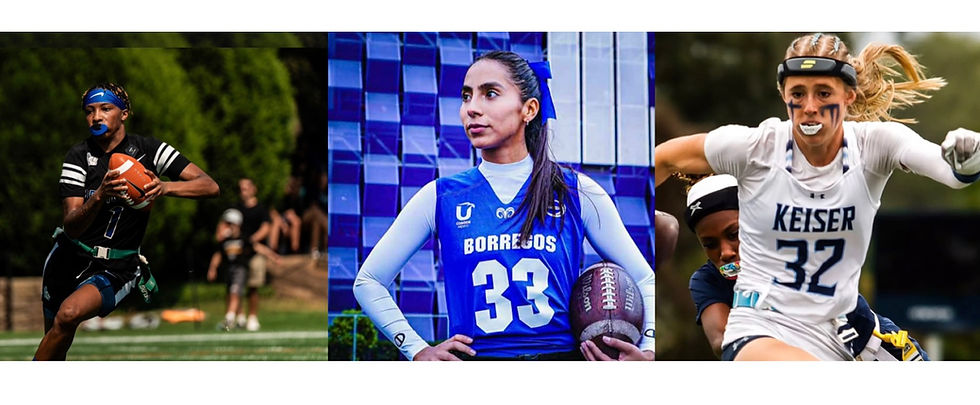Note to Business Student-Athletes: Don’t Forget Taxes
- condetrimental
- Sep 24, 2021
- 4 min read
Updated: Aug 7, 2022
BY: RJ CURINGTON
The National Collegiate Athletic Associations and the National Association of Intercollegiate Athletics new name, image, and likeness (“NIL") rules allow student-athletes with thousands, and some with millions, of followers to profit off of the use of their NIL. Including through sponsorship deals to represent companies and their products while maintaining eligibility. Many lucrative NIL deals have already surfaced.
A few months after enactment of the NIL rules and multiple lucrative NIL deals later, it’s safe to say that student-athletes can now be considered business-athletes, effectively making them entrepreneurs and small business owners. With the ability to now generate revenue comes great responsibility.[i]
Business student-athletes will soon realize or remember that with income comes taxes, contracts need to be reviewed, and compliance is a concern to deal with. Students signing NIL deals should consider consulting with attorneys, accountants, and personal advisers.[ii]
While smaller deals may be easier to navigate and simple enough to report on a 1040 tax form, that will become more challenging as the dollars increase.[iii] Further, since athletes are unlikely to be hired as employees, their taxes will not be taken out the way they would if the athlete was getting a regular paycheck. This is advantageous to get the larger gross checks and to have cash management potential. However, it’s disadvantageous if the athlete believes that check is all for them. Up to half or more could go to the IRS and their state.[iv]
Business student athletes should consider that cash is not the only thing that is taxed. The “free” stuff, like a car, the products, or travel is taxed as well. These benefits are generally taxed at the fair market value, which creates even more issues as athletes can have taxable income without even receiving cash.[v] The companies write off all of the gifts on their taxes. The value of these items are usually income to the athletes too. In a cash payment for specific actions contract, the fees might be bundled for certain services, or listed as a dollar amount for each item from appearances, autograph signing, media posts, and endorsements.[vi] Merchandise allowances for services also are taxed, based on the value of the merchandise.[vii]
The sponsor who wants the athlete to wear their gear is required to issue IRS Forms 1099 each year for the value of the gear. IRS Forms 1099 are sent in January for the prior calendar year. Federal taxes apply with a top rate of 37%. Additionally, state income taxes apply. But which state gets to tax this income, the athlete’s home state, or where he or she attends college? Income earned across multiple states generally requires filing multiple state income tax returns. An appearance in a nearby state could create a need to file a return for that state. Income will likely need to be apportioned to different states if the athlete lives in different states during the year.
Another consideration is self-employment tax. The tax code imposes three different taxes on self-employment income: a 12.4 percent Social Security tax, a 2.9 percent Medicare tax, and a 0.9 percent Medicare surcharge tax.[viii] For 2021, the Social Security tax applies to self-employment income up to $142,000.[ix] The Medicare tax is imposed on an individual’s self-employment income, and the Medicare surcharge tax is imposed on self-employment income exceeding $200,000, or in the case of a joint return, $250,000.[x] Collectively, these three taxes make up self-employment tax. In most cases, athlete income is likely to be considered self-employment income.
Besides the filing of annual tax returns, there is a compliance burden. There are quarterly estimates to make, so athletes pay into the IRS four times a year. Planning ahead is crucial so a business student-athlete doesn’t end up unable to pay their taxes. Business student-athletes should consider forming their own companies that in turn will get paid, and that will pay them. As a C corporation, S corporation or LLC, their entities may do much of the contracting, and they can open up added tax and other benefits.[xi] This new generation of business-athletes will need to make sure to keep track of their income and where it comes from. Additionally, they will want to keep track of all their expenses as those will help offset the income that they receive. Expenses such as travel, meals, phones, and internet are deductible if incurred as part of their business.[xii]
New business student-athletes should consider the tax implications of their NIL endorsement deals which may require a full team effort.
[i] Laird, P. Brent, STUDENT ATHLETES: NAME, IMAGE, LIKENESS, & TAXES https://kernuttstokes.com/industries/college-athletics-athletes/ (July 2021) [ii] Moody, Josh, Name, Image, Likeness: What College Athletes Should Know About NCAA Rules, US News, https://www.usnews.com/education/best-colleges/articles/name-image-likeness-what-college-athletes-should-know-about-ncaa-rules (Aug. 9, 2021, at 10:27 a.m.) [iii]Id. [iv] Wood, W. Robert, College Athletes Cutting New Name Image Likeness Deals Could Be In For A Tax Shock, Forbes, https://www.forbes.com/sites/robertwood/2021/08/30/taxing-college-athlete-name-image-likeness-deals/?sh=39575452c65a (Aug 30, 2021,11:40am EDT) [v] Laird, P. Brent, STUDENT ATHLETES: NAME, IMAGE, LIKENESS, & TAXES https://kernuttstokes.com/industries/college-athletics-athletes/ (July 2021) [vi]Id. [vii]Id. [viii] Wood, W. Robert, College Athletes Cutting New Name Image Likeness Deals Could Be In For A Tax Shock, Forbes, https://www.forbes.com/sites/robertwood/2021/08/30/taxing-college-athlete-name-image-likeness-deals/?sh=39575452c65a (Aug 30, 2021,11:40am EDT) [ix]Id. [x]Id. [xi] Laird, P. Brent, STUDENT ATHLETES: NAME, IMAGE, LIKENESS, & TAXES https://kernuttstokes.com/industries/college-athletics-athletes/ (July 2021) [xii]Id.






